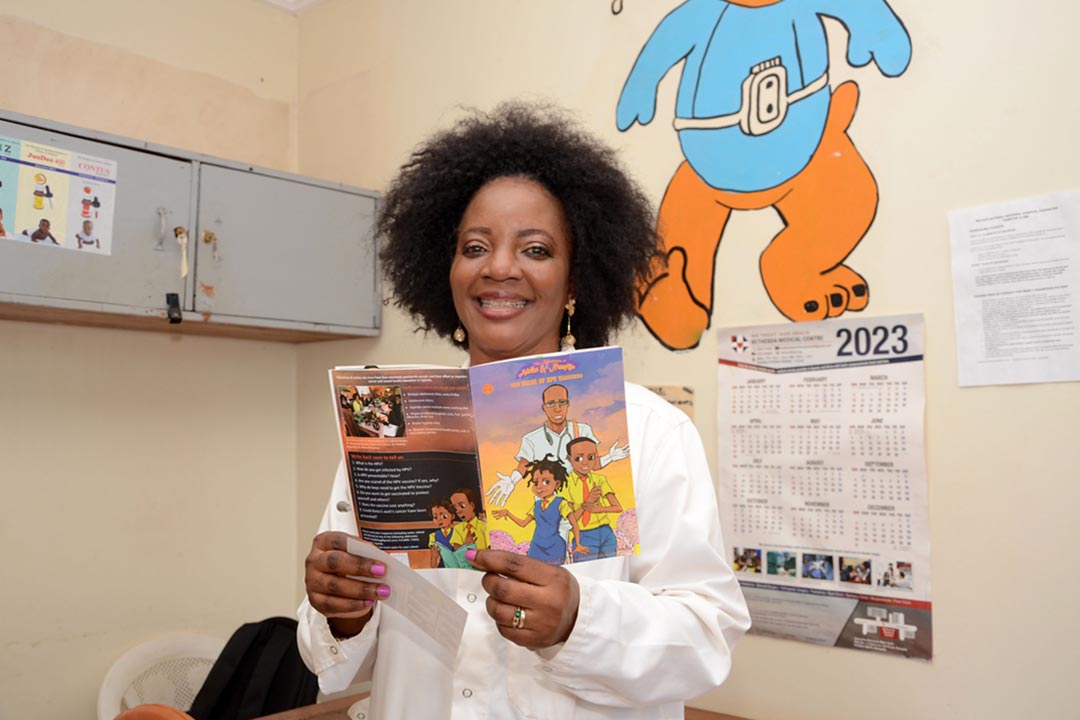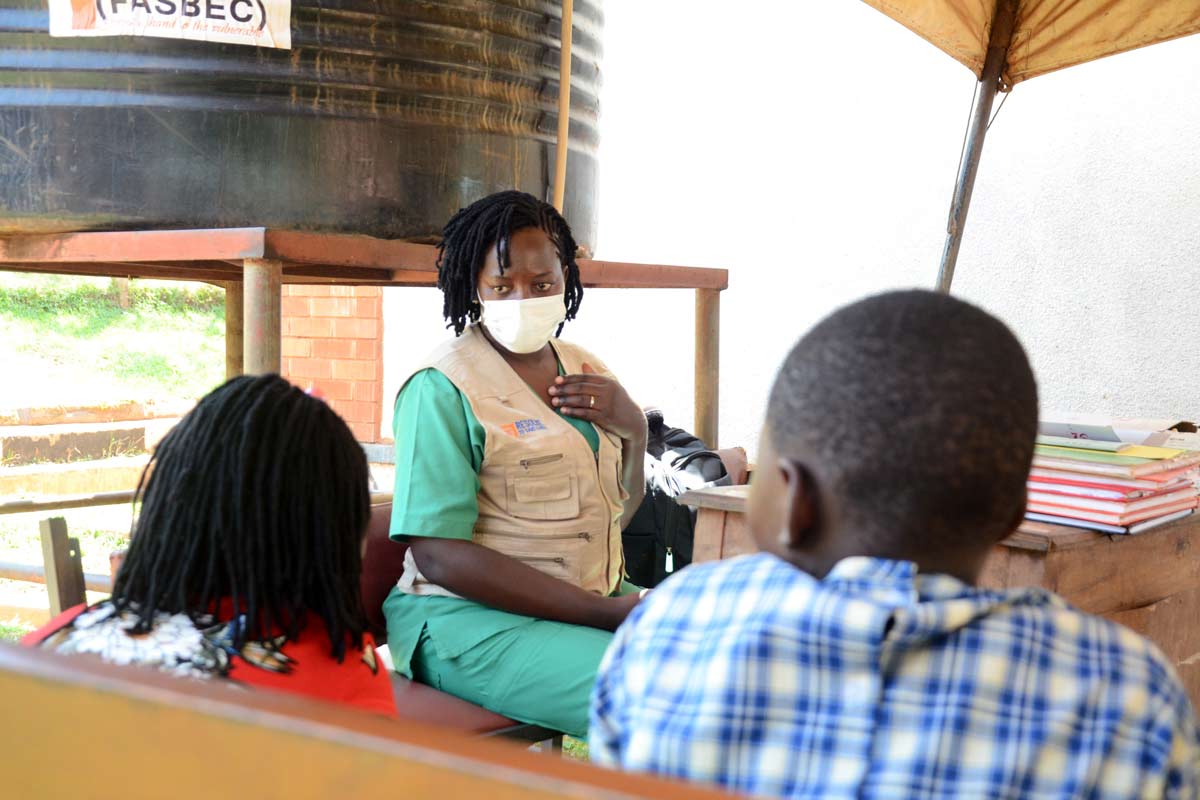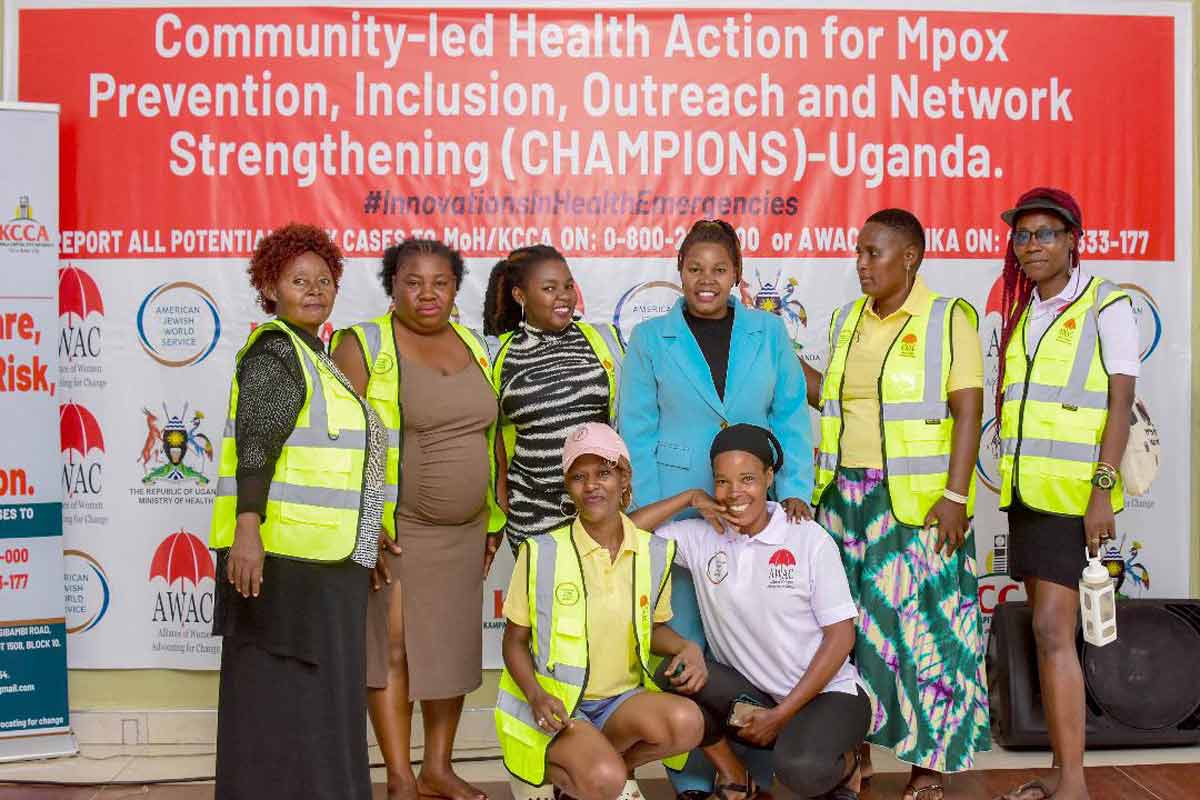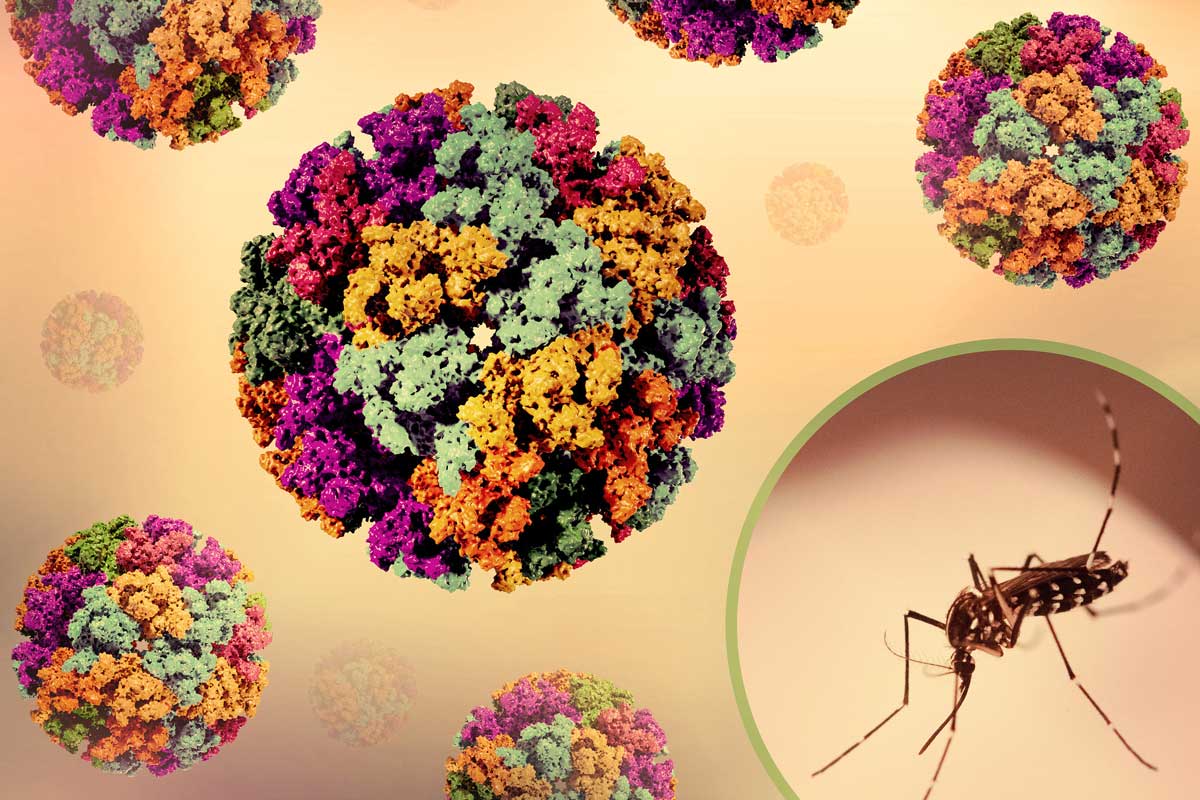Cartoon heroes: the comic book teaching Ugandan kids the value of HPV vaccination
Cervical cancer kills thousands of Ugandan women each year. That’s what the “Adventures of Adriko and Nampijja” is trying to change.
- 13 October 2023
- 5 min read
- by Esther Nakkazi

On a Friday afternoon in Kampala, Patricia Nakyalu walks into the Adolescent Clinic at Makerere Mulago Hospital's Ward 15 to enquire about receiving the vaccine against the cancer-causing human papillomavirus (HPV).
"For me that is the power of literature, the power of reading, and the impact of a picture that says a lot beyond what one might communicate to a parent regarding the importance of their children getting a vaccine."
– Dr Sabrina Kitaka
The weekly clinic, staffed by Mulago health workers and students pursuing their master's degrees in paediatrics, is helped out by a younger volunteer corps. Nakyalu is welcomed by two teens stationed at the reception, tasked with assisting and educating their adolescent peers about the benefits of the HPV and tetanus vaccines.

Credit: Esther Nakkazi
One of the volunteers, John Mckenzie Bwesigye, a 14-year-old with dreams of becoming a doctor, presents her with a comic book. "The Adventures of Adriko and Nampijja: The Value of HPV Vaccines," its title reads.
Comics to the rescue
In ten brightly illustrated pages, a lesson unfolds. Adriko, a boy of perhaps ten or 11, and Nampijja, a similarly aged girl, are finally back in school after the lockdown. Kids share their updates. Birungi excitedly reveals she received a dose of the HPV vaccine. Kintu tells the group that his aunty has recently died of cervical cancer.
The class buzzes with discussion. Teachers Martha and Moses are overwhelmed by the kids' questions: What's it for? Does it hurt? Is there any truth to the rumours that the jab can cause sterility? In the break room, over steaming cups of tea, they hatch a plan. Why not ask Birungi's dad, Nurse John, to come in and deliver a talk?
John arrives in a white uniform and confident smile. The vaccine is safe, effective, and totally free, he explains in a lively dialogue with the students.
In the real-world Mulago clinic, Nakyalu finds the comic book – which was produced by Uganda's Ministry of Health with support from partners including UNICEF and WHO – to be a delightful distraction from the anxiety of impending injections and a valuable source of education. It's a blend, she says, of comfort and knowledge.
"I like the HPV comic book," says Bwesigye, the volunteer. "I like how it clears up rumours about this vaccine. The animation is quite cute and charming."

He's learned a couple of things he didn't know about the virus from it, too. "It says cervical cancer is for the ladies, but men are [also] the ones harbouring the virus," he says.
He says he hasn't surveyed clinic visitors for their opinions on the comic, but says with a smile, "When they take them (the comic books) they never give them back."
Needle and nib
Data from the Uganda Ministry of Health shows that in 2022 there were 6,900 reported cases of cervical cancer in the country. Tragically, 4,300 of these women lost their lives.
Have you read?
Uganda targets girls aged ten to 14 with the cancer-blocking HPV jab. "Ideally, there would be no problem for other age groups, especially if they are not yet sexually active," says the Program Manager at the Uganda National Expanded Program on Immunization (UNEPI), Dr Michael Baganizi. But doling out doses out to older age groups could deny access to the age group deemed most likely to benefit from the jabs. Each country plans and budgets for a target population to be vaccinated. "You target the group with the highest possible benefit fitting in your available resources."
That means kids. But in some areas, says Dr Sabrina Bakeera Kitaka, a passionate paediatrician and champion of adolescent health, parents have been reluctant to send their children to school on vaccination days.
An idea comes to life
"Demand creation has to resonate with the very population that receives the vaccine," says Kitaka. "That is why we were inspired to develop a comic book."
The comic book was conceived after Engineer Rossini Silveira, a former TotalEnergies staffer, met with Dr Marta Ferraresso, a PhD student at the time.
Silveira was working with a team of Ugandan artists to create awareness of safe fuel practices using an educational comic. Dr Ferraresso was working on a project to improve HPV uptake in Uganda.
After initial discussions, Dr Ferraresso invited Dr Sabrina Kitaka and her colleague, Dr Monica Namuli, also a paediatrician, to brainstorm about the project.
Like many comics, the book can be read by children as young as six years, Kitaka points out, meaning it's a source of information that doesn't have to be channelled through adults.
One eight-year-old girl told doctors her mother had scribbled out the word "sex" in the comic book. She stated that she already knew the word anyway, and that the book helped her understand why she needed to receive the vaccine once she turned ten.
"For me that is the power of literature, the power of reading, and the impact of a picture that says a lot beyond what one might communicate to a parent regarding the importance of their children getting a vaccine," says Dr Kitaka. "This demand creation should even begin when children are eight years of age, so that they understand that when they reach that age [ten], they should receive the vaccine.
"I think the other discussion will be: how can how can we make HPV a gender-neutral vaccine, that boys and girls should get?" she adds.
The message spreads
So far, more than 4,000 copies of the comic book have been distributed in two languages: English and Luganda. These are mostly distributed at the Adolescent Clinic at Mulago hospital and during outreaches.
The Ministry of Health, in collaboration with partners, has also committed to extending its reach even further. An additional 200,000 copies of the comic book are slated for printing.
It already has an influential fan following. "The comic book presents the best chance thus far to reach adolescents with a hopeful message to tackle cervical cancer in this country," says Geria Richard, an artist and the former Executive Producer of hit Ugandan TV series The Hostel.









